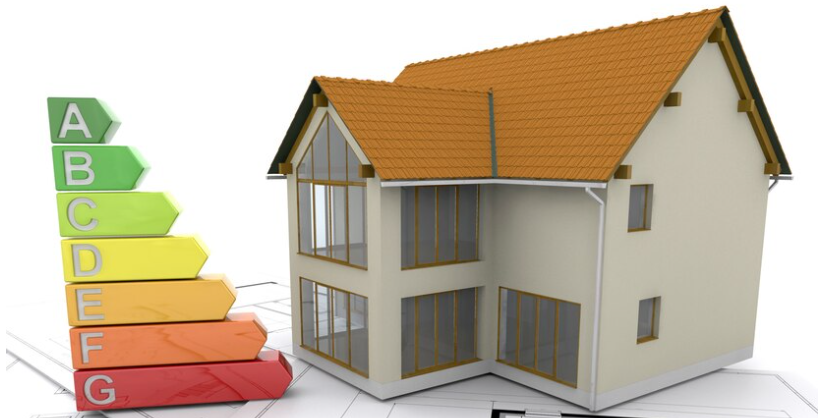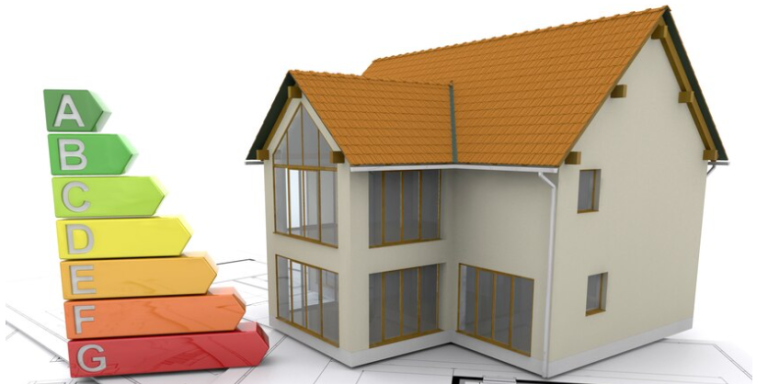
As a homeowner or landlord in the UK, improving your home’s Energy Performance Certificate (EPC) rating is not just about reducing energy costs, it’s also about making your property more appealing to future buyers or tenants.
With a growing emphasis on energy efficiency, particularly in light of rising energy prices and environmental concerns, a higher EPC rating can provide a significant advantage.
In this article, we’ll discuss eight effective ways to boost your home’s EPC rating, ensuring your property is not only more energy-efficient but also future-proof.
1. Upgrade to a Modern, Energy-Efficient Boiler
One of the quickest and most impactful ways to improve your EPC rating is by upgrading your boiler. Older models often consume more energy, leading to higher bills and a lower EPC score.
By installing a modern, energy-efficient boiler, you can significantly reduce your energy consumption, increase your EPC rating, and save money on heating costs.
If you’re considering upgrading your boiler, it’s important to research the best options for your home. Ideal Heating is known for producing some of the most energy-efficient boilers on the market. Check out Ideal boiler prices and reviews guide to find a model that fits your needs and budget.
2. Insulate Your Property Properly
One of the most effective ways to increase your home’s EPC rating is by ensuring it’s properly insulated. Poor insulation results in heat loss, making your heating system work harder and increasing your energy bills.
By investing in high-quality insulation, you can keep your home warm in winter and cool in summer, reducing your energy needs.
Consider installing loft insulation, cavity wall insulation, and even underfloor insulation. These improvements can make a big difference in your EPC rating, particularly if your property is older and lacks modern insulation.
3. Install Double or Triple Glazing
Windows can account for a large amount of heat loss in a property. Installing double or even triple glazing can help prevent this and make your home much more energy-efficient.
Double glazing reduces heat loss and can also reduce noise pollution, making it a valuable investment for both energy efficiency and comfort.
If you have single-glazed windows, replacing them with double-glazed windows could have an immediate positive impact on your EPC rating. Not only will this improve your home’s energy performance, but it’ll also enhance its marketability if you’re looking to sell or rent.
4. Switch to Energy-Efficient Lighting
While it may seem like a small change, switching to energy-efficient lighting throughout your home can have a positive effect on your EPC rating. LED bulbs use significantly less energy than traditional incandescent bulbs and last much longer.
This simple upgrade is an affordable and straightforward way to improve your EPC score. Replacing all your light bulbs with LEDs can reduce your energy consumption and make your home more environmentally friendly.
5. Seal Draughts and Gaps
Draughts and gaps around windows, doors, and other openings are one of the easiest ways for heat to escape from your home. This results in higher energy bills and a lower EPC rating. Ensuring that your home is properly sealed can prevent these losses and improve your energy efficiency.
To seal gaps, you can use weatherstripping or draught excluders for doors and windows. Adding a letterbox flap and using draught-proofing strips on the edges of doors can also help.
These minor improvements can help maintain the warmth inside your home, reducing the load on your heating system.
6. Upgrade Your Heating System
If your heating system is old or inefficient, upgrading to a more modern system can drastically improve your EPC rating. Consider installing a smart thermostat that allows you to control your heating more efficiently, ensuring you’re only heating your home when necessary.
Smart thermostats can also help reduce energy waste by learning your preferences and adjusting the temperature accordingly.
In addition to upgrading your boiler, look into low-energy heating systems such as air source heat pumps or underfloor heating. These systems are incredibly energy-efficient and can provide a sustainable way to heat your home without significantly increasing your EPC rating.
7. Install Solar Panels
If you’re looking for a long-term investment that can dramatically improve your EPC rating, installing solar panels is an excellent option.
Solar energy is a renewable source of power that can reduce your dependence on grid electricity, helping lower your energy bills and reduce your carbon footprint.
In addition, installing solar panels can be a selling point for your property, especially as more and more buyers and tenants are looking for homes with eco-friendly features. Solar panels can significantly improve your EPC score and increase the overall value of your property.
8. Consider Renewable Energy Sources
In addition to solar panels, there are other renewable energy options that can help improve your EPC rating. Air source heat pumps, ground source heat pumps, and biomass boilers are all excellent choices for homeowners looking to reduce their environmental impact and boost their EPC rating.
These renewable energy systems may have a higher upfront cost, but they can result in significant energy savings over time and provide a more sustainable solution for heating and powering your home.
Conclusion
Improving your EPC rating is a worthwhile investment that can save you money, reduce your carbon footprint, and make your property more attractive to buyers or tenants.
Whether you’re upgrading your boiler, insulating your home, or exploring renewable energy options, there are numerous ways to boost your EPC rating and improve your home’s energy efficiency.
By taking the necessary steps to enhance your home’s energy performance, you’re not only increasing its EPC rating but also contributing to a greener and more sustainable future. Whether you’re a homeowner or landlord, these improvements will help you create a more comfortable, energy-efficient living space.


